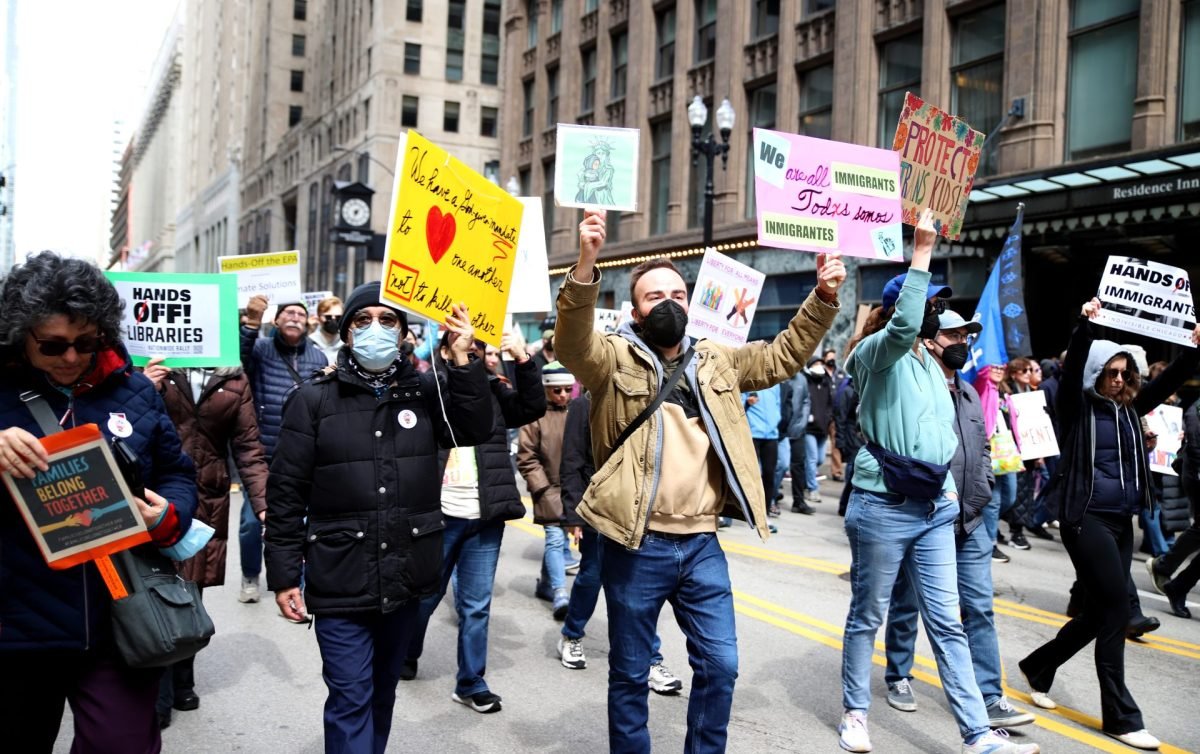

Since Donald Trump took office on Jan. 20, his immigration crackdown has consisted of executive orders, shutdowns and other actions. Among his most notable targets are international students.
To travel to the United States, foreign nationals must acquire either a temporary stay visa or an immigrant visa. For high schools, private elementary schools and universities like DePaul, students must obtain F-1 visas.
The revocation of student visas began as soon as President Trump took office. According to Ian Wagreich, a partner at the law firm Hinshaw & Culbertson LLP, most visa revocations fall into one of three groups: students protesting Israel’s attacks on Gaza; students who had criminal hits like minor traffic tickets; and students whose visas had been removed for “no discernible reason.”
One of the most common justifications for visa revocations was the Immigration and Nationality Act of 1952. This act, while removing some discriminatory practices in immigration law, retained nationalistic ideals. Section 1227 of the act gives the government the power to deport “an alien whose presence or activities in the United States the Secretary of State has reasonable ground to believe would have potentially serious adverse foreign policy consequences for the United States.”
The Trump administration has used this act to justify the widely publicized detainment of Mahmoud Khalil, a Columbia University master’s student. According to White House Press Secretary Karoline Leavitt, Khalil’s activism for Palestine was “adversarial to the foreign policy and national security interests” of the United States.
Visa revocations were met with considerable pushback from the legal community, with over 100 lawsuits and 50 restraining orders filed.
“We are representing students from DePaul and other colleges (in the) Chicago area mostly facing SEVIS or F-1 visa revocations, having their status completely revoked,” said Taqio Rahman, a representative for the Chicago branch of the Council on American-Islamic Relations.
Two DePaul students who also had their visas revoked, Satyanarayana Mekarthi and Vishnu Vardhan Nali, have sued the Department of Homeland Security.
Other notable cases include Tufts student Rümeysa Öztürk and Columbia student Mohsen Mahdawi. Öztürk, a student at Tufts University, had co-authored an op-ed in the university’s newspaper criticizing Tufts’ refusal to condemn Israel. Öztürk was detained by agents from the Department of Homeland Security.
Mahdawi, a Columbia student, was involved in pro-Palestinian demonstrations and co-founded the university’s Palestinian Student Union with Khalil. Immigration officials detained Mahdawi at a citizenship interview. While Öztürk’s and Mahdawi’s cases resulted in the students being released, Khalil remains in custody.






